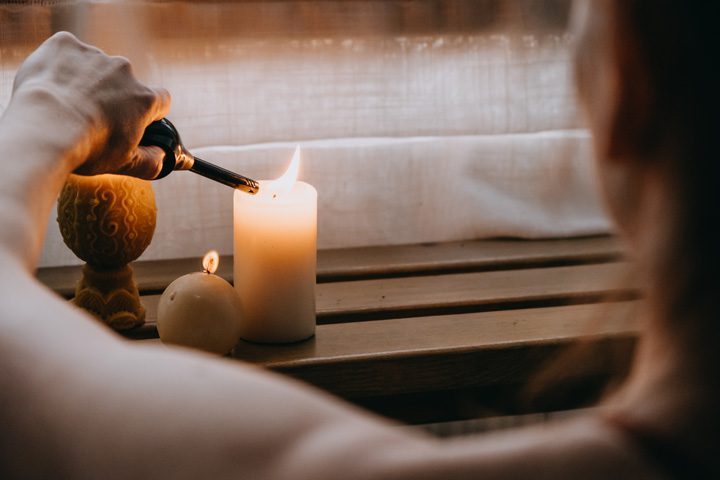
Self-care is often a buzzword that many people grow weary of hearing, simply because they think it involves a lot of snake-oil products or unrealistic methods. While there might be a little of that in the marketplace, it benefits you to take the concept seriously and develop what helps you be your best.
“You Can’t Pour From an Empty Cup”
Maybe you’ve seen this meme pop up on social channels: “Take care of yourself first: you can’t pour from an empty cup.” This goes beyond the scope of “me time” with a bubble bath and candlelight, although that might be relaxing for some people. Self-care is about recognizing what drains your energy and methods that help you regain it.
Cognitive behavioral therapy and other forms of counseling frequently address energy balance, especially when someone is struggling to effectively manage anxiety, depression, or another mental health condition; or they’re in recovery for eating disorders, process addictions, or alcohol and drug addiction. When you have a clearer picture of your energy flow, it helps you avoid triggers and make better, healthier choices.
There are many reasons your cup might be empty. Here are just a few:
- Negative thoughts
- Critical people
- Troubles at work or burnout
- Loneliness and isolation
- Feeling uninspired and without direction
- Complications with your mental or physical health
- Feeling rushed or overscheduled
- Rejection
- Stress
- Intense family responsibilities
- Fatigue or a general lack of energy
- Feelings of failure
- Lack of meaningful connection
Too often, when we feel depleted, it’s all too easy to revert back to unhealthy behaviors, especially when we think there’s some sense of comfort in them or we’re just trying to put one foot in front of the other to make it through each day.
Instead, the true concept of self-care is to create meaningful routines and rituals that allow you to not only top off your cup more frequently, but also have a greater awareness of when it might be tipping a bit so you can stabilize it before your mental, emotional, physical, and spiritual state is compromised.
Ideas for Self-Care
What works for someone else might not be your preference. Some people really don’t like meditation, for example, no matter how much their friends might rave about it. Aficionados of essential oils may rely on droplets for every circumstance, but they all smell like your grandmother’s soap to you.
Wayne Jonas is a physician, author, and executive director of the Samueli Foundation’s Integrative Health programs. In an article for Psychology Today, Jonas created a three-point framework that helps establish your self-care approach. We outline it verbatim here:
- Establish your meaning and purpose. Ask yourself:
- Why do you want to be healthy?
- What matters to you?
- What do you value?
- Why do you want to make a change?
- Develop a vision of where you want to go.
Describe a time in your life when you felt your best. Explore daily activities, energy level, family connections, social events, work commitments, and special occasions.
- What do you want to do when you achieve your goal? Ask yourself:
- When you are not feeling at your best, what drops off? What don’t you do? What gets cut from your to-do list? What do you miss or miss out on?
- Who are the important people in your life? What do you like to do with them? For them?
“By doing this pre-work,” Jonas wrote, “You can link up your new behaviors with what you want to live for and why you live, like your family, friends, hobbies, and passions.”
With this outline, you can start to build upon what self-care routines and techniques matter most to you. Here are some examples:
- Does taking a walk outside each morning help ground you and put your connection to the world in perspective?
- Do you need a pre-dinner dance break with family to shake off the day’s stress and prepare for a calm evening?
- What three family members or friends allow you to reach out anytime, day or night, for emotional recalibration?
- When and how should you check in with yourself before circumstances start to fray?
The Possibilities
The possibilities of what you can create are endless. And if there are bubble baths, candles, mediation, and essential oils in the mix, so be it!
What matters most is that your concept of self-care is rooted in your values, beliefs, and goals so that you’re always in touch with your true identity. Forging tools from this base material means that you’ll pick them up again and again to handle whatever comes your way. No fads, no trends—just honest attention.
On his website, Jonas offers a comprehensive integrated self-care guide, along with other free downloadable resources for creating positive change, building the confidence to change a habit, and other aspects of progessive well-being.
A Foundation of Holistic Wellness at Cottonwood Tucson
Living a full life free from the trials of substance addiction, eating disorders, process addictions, and mental and emotional health disorders means you need trusted methods to provide vigor, happiness, and peace.
Every person who chooses Cottonwood Tucson as a health partner receives the benefit of learning many diverse holistic treatment practices, from yoga and meditation to EMDR and brainspotting. You’re exposed to a new world of wellness with methods that ground you in a deeper connection of whole-self knowing and resilience. Ask us how this path may work for you.







